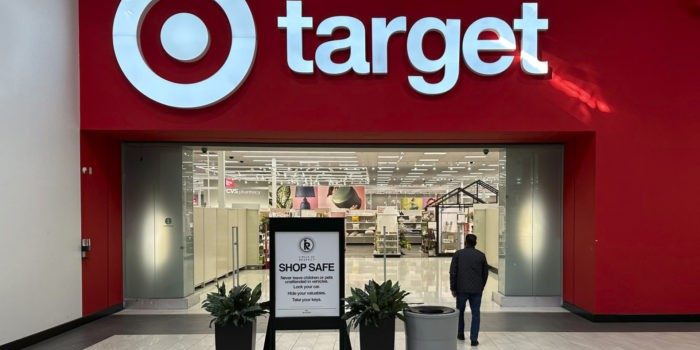(Headline USA) Big-box store chain Target said Friday that it would join rival Walmart and a number of other prominent American brands in scaling back diversity, equity and inclusion initiatives that have come under attack from conservative activists and, as of this week, the White House.
The Minneapolis-based retailer said the changes to its “Belonging at the Bullseye” strategy would include ending a program it established to give special advantages to black stakeholders following the death of George Floyd in 2020.
The program singled out black employees for support in building meaningful careers, improved the experience of black shoppers and helped to promote black-owned businesses.
Target, which operates nearly 2,000 stores nationwide and employs more than 400,000 people, said it already had planned to end the racial program this year. The company said Friday that it also would conclude the DEI goals it previously set in three-year cycles.
The employee memo shared Friday also said Target would no longer would participate in surveys designed to gauge the effectiveness of its actions, including an annual index compiled by the Human Rights Campaign, a gay-rights activist group that uses commercial pressure to force compliance with its sweeping LGBT agenda.
Target said it would further evaluate corporate partnerships to ensure they’re connected directly to business objectives, but declined to share details.
Kiera Fernandez, Target’s chief community impact and equity officer, described the DEI decisions as a “next chapter” in the company’s decades-long process to create “inclusive work and guest environments that welcome all” in a memo to employees.
“Many years of data, insights, listening and learning have been shaping this next chapter in our strategy,” Fernandez wrote in the memo, which Target shared Friday. “And as a retailer that serves millions of consumers every day, we understand the importance of staying in step with the evolving external landscape, now and in the future.”
Target previously put itself on the front lines as one of the standard bearers in pushing a “woke” agenda, most notoriously by declaring it would allow transgender men in women’s restrooms, as well as foisting LGBT and transgender products onto unwitting customers with in-your-face displace, including “tuck friendly” swimsuits for children.
As transgender rights became a more prominent issue in 2016, the company declared that “inclusivity is a core belief at Target” and said it supported transgender employees and customers using whichever restroom or fitting room “corresponds with their gender identity.”
But after backlash, the company said that more stores would make available a single-toilet bathroom with a door that could be locked.
Nonetheless, Target’s over-the-top virtue-signaling eventually drew boycotts from conservative customers who demanded the ability to shop free from political grandstanding. After its sales and stock value dropped, the company backpedaled some but continued to supply the more controversial products.
The company decided last year not to stock Pride Month products at every U.S. store.
A 2023 U.S. Supreme Court decision that outlawed affirmative action in college admissions emboldened conservative groups to bring or threaten lawsuits targeting corporate initiatives pushing a leftist identity-politics agenda.
However, some of the most prominent companies to succumb to pressure have been those who count blue-collar, middle-America conservatives as a significant portion of their clientele, fearing that the negative optics could lead them to become the next Bud Light.
Walmart, McDonald’s, Ford, Harley–Davison and John Deere are among the well-known consumer brands that reduced or phased out their DEI commitments in recent months.
President Donald Trump this week signaled his administration’s agreement with conservatives who argue that policies singling out individuals for special treatment through factors such as race, gender and sexual orientation were unconstitutional.
On his first day in office, Trump signed an executive order aimed at ending DEI programs across the federal government. The order calls for revoking all DEI mandates, policies, preferences and activities, along with the review and revision of existing employment practices, union contracts, and training policies or programs.
Still, some prominent companies have resisted public pressure to retreat from their diversity plans. On Thursday, Costco shareholders rejected a proposal urging the wholesale club operator to evaluate any risks posed by its DEI practices.
According to preliminary results shared by Costco executives, more than 98% of shares voted against the proposal submitted by a conservative think tank based in Washington. Costco’s board of directors had recommended a no vote.
Apple’s board and the CEO of JPMorgan bank also have expressed a commitment to preserving their companies’ DEI activities.
Adapted from reporting by the Associated Press

